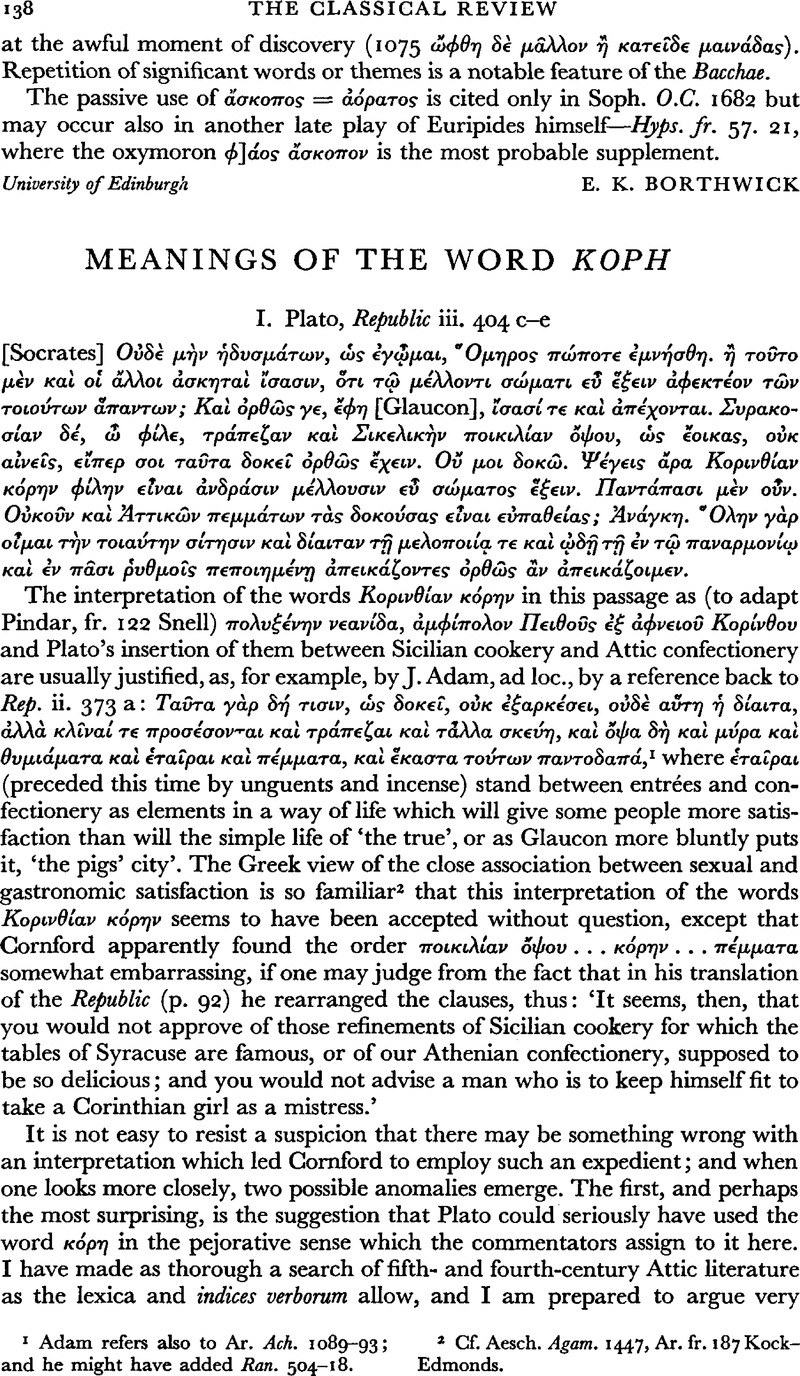No CrossRef data available.
Published online by Cambridge University Press: 27 February 2009

page 138 note 1 Adam refers also to Ar. Ach. 1089–93; and he might have added Ran. 504–18.
page 138 note 2 Cf. Aesch. Agam. 1447, Ar. fr. 187 Kock-Edmonds.
page 139 note 1 H. Herter, R.A.C. s.v. ‘Dirne’ 1154–5, does not mention κ⋯ρη as one of the possible ‘Ausdrücke’.
page 139 note 2 One would expect Ionians (and perhaps specifically Milesians) to be even more objectionable from Plato's point of view than Corinthians; cf. Hor. Od. iii. 6. 21.
page 139 note 3 I have failed to trace the feeling against Corinthian girls farther back than Strattis, Macedonians (produced, according to Edmonds, in 402); the really uncomplimentary references come in the fourth century, from Ar. Plut. 149–52 onwards.
page 139 note 4 But not their wine, to judge from Alexis 290. I am much indebted for my information about Old and Middle Comedy to the indexes in Edmonds, J. M., The Fragments of Attic Comedy i–ii (Leiden, 1957, 1959).Google Scholar
page 140 note 1 ⋯φθαλμοῖς codd. Longin., Stob.: θαλ⋯μοις codd. Xen.
page 140 note 2 Dionysii Longini quae supersunt … recensuit J. Toupius. Accedunt emendationes Davidis Ruhnkenii (ed. 2, Oxford 1778), 248. The punctuation etc. are Ruhnken's own. I am grateful to Dr. E. Hulshoff Pol for the reference and to Dr. H. B. Gottschalk for lending me his copy of the book.
page 140 note 3 For Amphicrates, of whom D. A. Russell ad loc. says nothing, see M. v. A(lbrecht) in Der Kleine Pauly, s.v. Amphikrates 3).